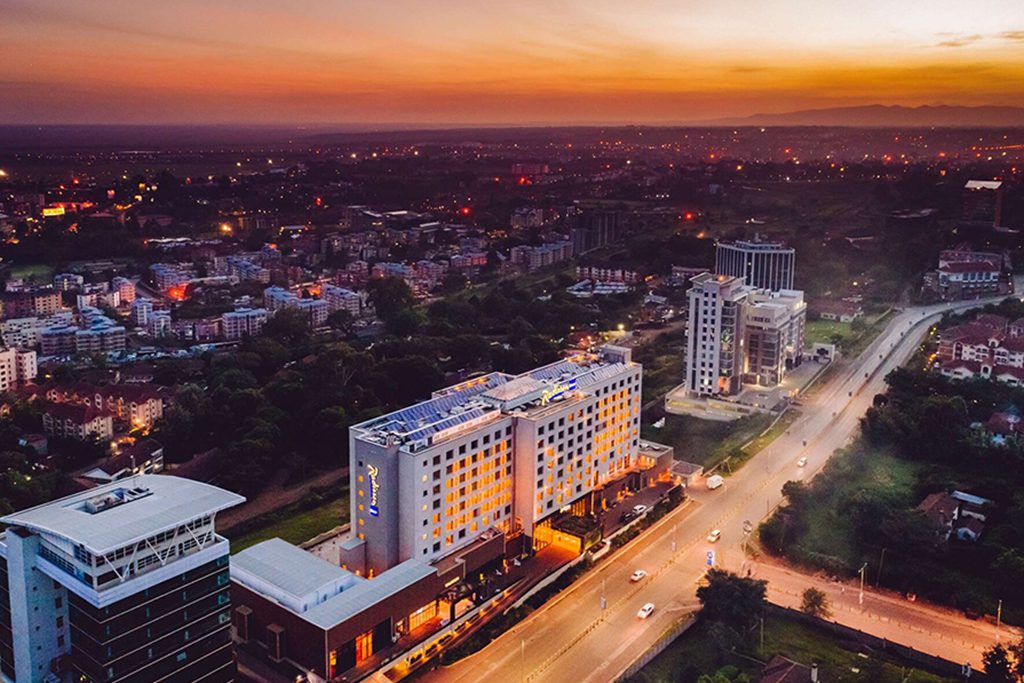Kenya Tourism Shows Its Resilience After January's Nairobi Attack

Skift Take
Seven months after al-Shabaab militants stormed the gates of the 14 Riverside Drive complex in the Westlands district of Nairobi, killing 21, the hotel that was the target of the terror attacks has reopened for business.
The dusitD2 Nairobi reopened on Aug. 1, following a six-month renovation that overhauled restaurants, fitness facilities, and conference venues.
“The reopening has gone smoothly and security levels have moved a notch up, particularly at the main entrance of the compound where the hotel is located,” said Michael Metaxas, general manager of dusitD2 Nairobi. “Business has started coming back and the demand is slowly picking up, both in enquiries for guest rooms as well as in meetings and conferences.”
The January attacks made global headlines and took the shine off Kenya’s impressive arrival figures for 2018, announced just weeks before the incident.
Those numbers showed a 37 percent jump in arrivals in 2018, to 2.025 million visitors, of which 73 percent were leisure tourists. According to the World Travel and Tourism Council, tourism contributed 8.8 percent to Kenya’s gross domestic product (GDP) in 2018, directly and indirectly pouring US$7.9-billion into the economy.
Tourism is also a key employer, says the WTTC, responsible for 1.1 million jobs, or 8.3 percent of the country’s total employment.
While the incident sent a tremor of unease through the country’s tourism industry, the impact on-the-ground on the all-important leisure market was limited.
“With the exception of a few concerned emails from potential clients, there wasn’t a lot of handholding required. We didn’t have a single cancellation as a result of the incident,” said Sarah Humble from Roberts Safaris.
“On the day it happened we were expecting a lot of calls from concerned tour operators, [but] it simply didn’t happen. The market is booming this season, and the Kenya Tourism Board says arrivals are up,” added Chris Mears, chief executive officer of African Travel and Tourism Association (Atta), a London-based trade association promoting tourism to Africa.
That muted reaction was perhaps helped by the fact that January is low season for Kenya’s safari industry, months away from the peak migration months of July and August. By that time the dust had settled and travel advisories were lifted. Leisure tourists also spend little time in the capital, typically flying off to remote safari camps, or coastal resorts, soon after arriving at Nairobi’s international airport.
There’s also an element of tourists becoming desensitized to the threat of terrorist attacks.
“For a lot of travelers, especially from the United Kingdom, Europe and North America, there are so many incidents happening in their own countries they are simply becoming immune to events such as these,” said Mears, adding that travelers are also becoming more geographically educated. “If an incident happens in a specific area they’ll realize that it may not affect them directly. In the case of Kenya, the vast majority of tourists will only spend a night in Nairobi before flying elsewhere.”
However, while low-season leisure travel saw little impact, corporate business took an immediate hit.
The attacks “definitely had an impact on the hospitality business in Nairobi, and we saw a 10 or 20 percent decline in the two or three months following the incident,” said Rob Kucera, district director East Africa and general manager of Radisson Blu Hotel, Nairobi Upper HIll. “But a lot of the conferences and summits simply moved their dates, they didn’t cancel. We recovered very quickly.”
For Kucera, the incident also highlighted the need to actively promote the property’s security arrangements. Radisson Blu Hotel, Nairobi Upper Hill holds ‘Executive Status’ from the Safe Hotels Alliance, and since the Westgate mall attacks in 2013 security has been ramped up at shopping centers, hotels and government buildings across the city. Today vehicle checkpoints and bag searches are widespread, and widely accepted.
“When you look at traveling to Africa, as a whole Nairobi is safe,” said Luis Mata
head of business development for sub-Sahara Africa at Wings Travel Management. “It was an unfortunate situation, but from a safety perspective Nairobi has really tackled security. That particular hotel was actually one of the safest in the country.”
Skift Contributor Richard Holmes is based in Cape Town.





